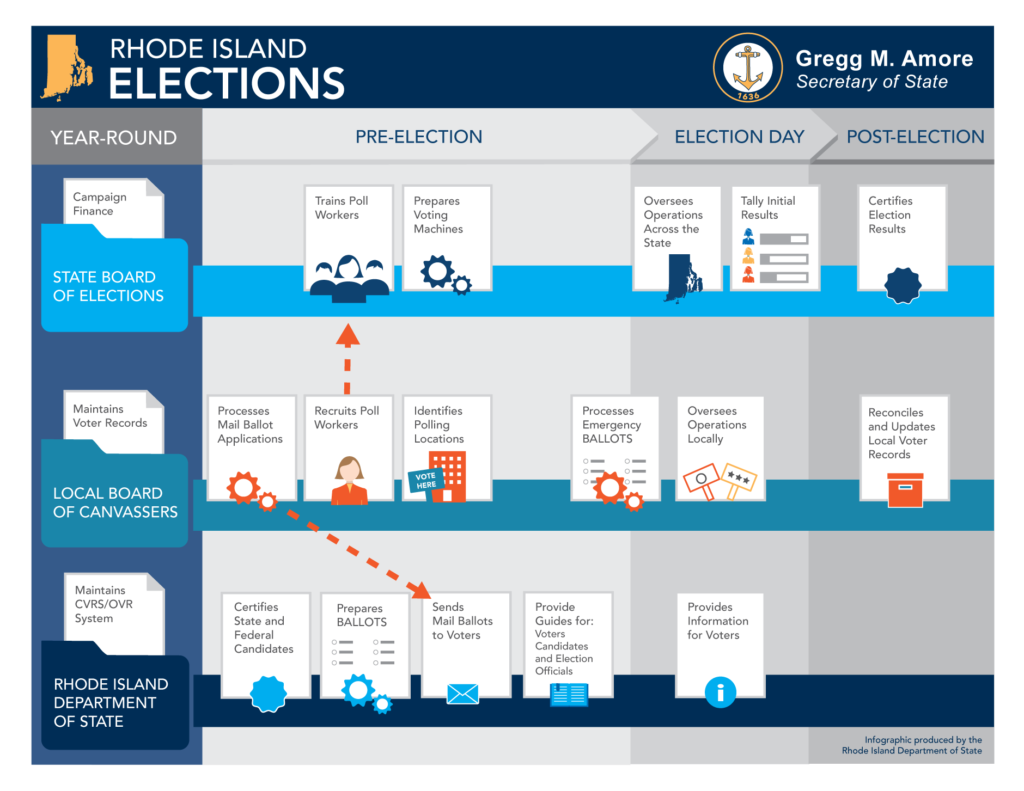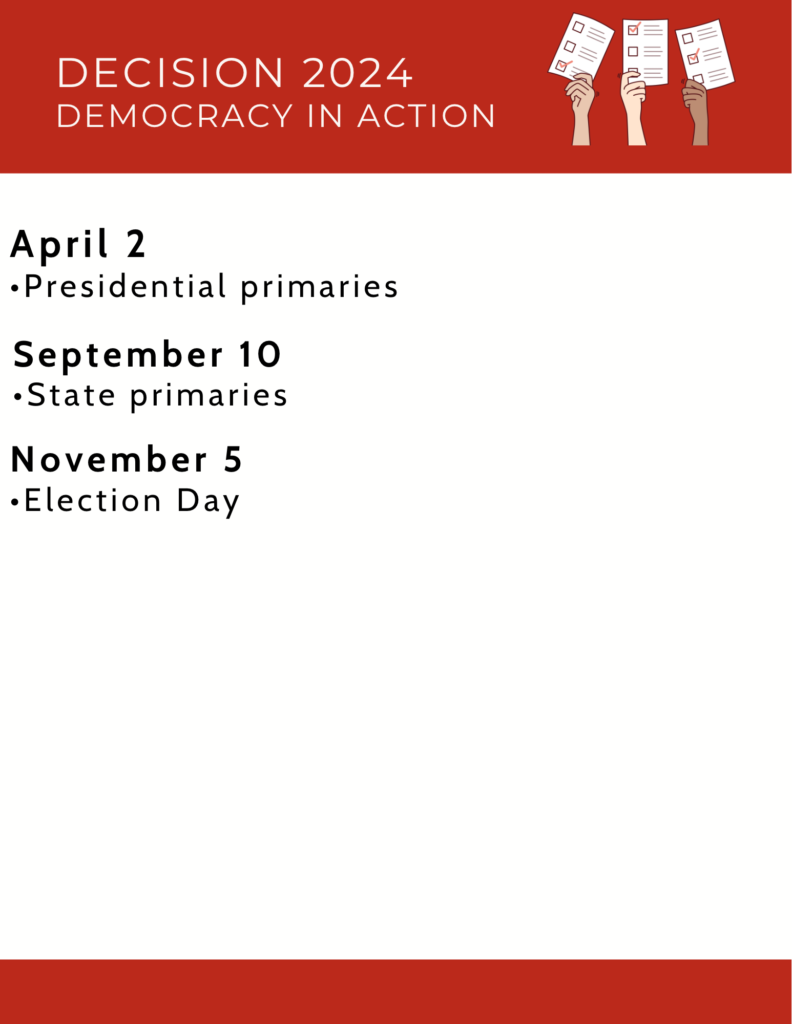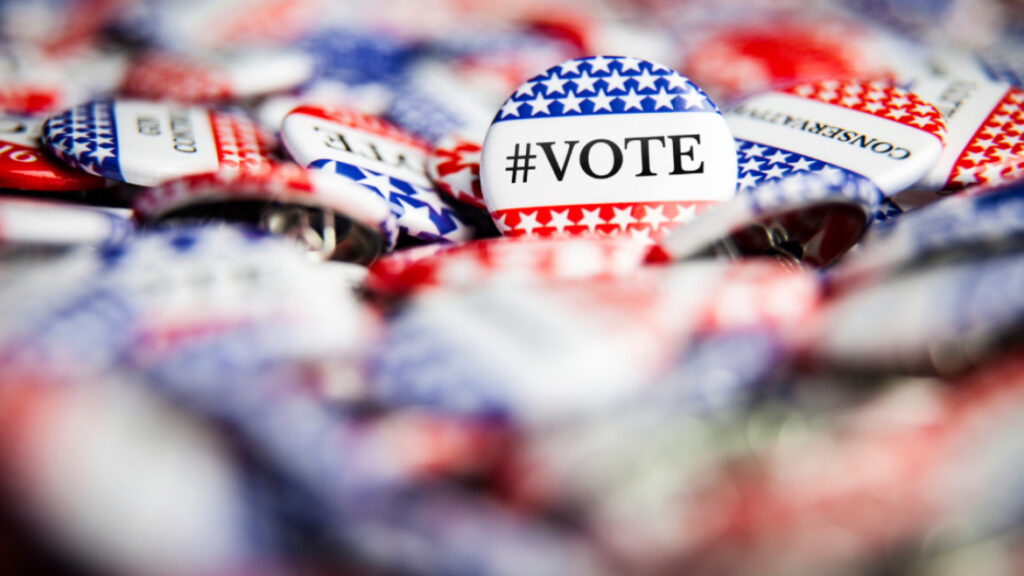The commencement of the 2024 election season is marked by the initiation of voting in Iowa on January 15. This period encompasses the presidential primaries and caucuses across the country, extending until June.
A narrow majority of Latinos in the U.S. are eligible to vote, according to a new report by the Pew Research Center. A little over half of all Latinos (53%) were eligible to vote in 2022.
Knowing the voting requirements before heading to the polls is essential, as the rules can be complex. Are you eligible to vote in the primary? Is pre-registration necessary? What kind of identification, if any, is needed? We at Rhode Island Latino News (RILN) want to help you find the answers to these questions.
In Rhode Island, elections administration is a collaboration between the Elections Division here at the Department of State, the State Board of Elections, and the local cities and towns.

Secretary of State Gregg Amore and the state Board of Elections have a proposal that would move Rhode Island’s primary day from early September to the last Tuesday in August, reports The Providence Journal.
The Amore-backed legislation would also set in motion an automatic series of actions if one or more cities and towns detect suspected forgeries on candidate nominating papers. “We don’t want a process where people are concerned about a single signature that may not match,” Secretary Amore said. “That’s part of the normal process. … We’re concerned about a pattern of forgery or a pattern of fraud,” he said.
Important Dates:

If you are affiliated with a specific political party, you may only vote in that party’s primary. Unaffiliated or independent voters can vote in any party primary, but by casting a vote in a party primary, you automatically become affiliated with that party.
While most states utilize primaries to choose their presidential nominees, nine states, including Iowa, continue to opt for caucuses as their selection method. Unlike traditional primaries, where voters privately cast their ballots, caucuses involve them gathering together to express their preferences openly.
For the upcoming election, the Democratic and Republican parties will hold caucuses in Iowa, Idaho, and Wyoming. However, only the Republican party will conduct caucuses in Alaska, Hawaii, Missouri, Nevada, North Dakota, and Utah.
Registration deadlines and requirements differ across states. In 42 states and the District of Columbia, online registration is available. Additionally, in 22 states and D.C., you can register and vote on the same day. If you choose this route, it is vital to have proof of your residence ready, such as a driver’s license or ID card. Some states may accept documents like paychecks or utility bills with your address as proof of residency. In certain states, same-day registrants may need to sign an affidavit or take an oath attesting to their eligibility and confirming that they still need to vote.
Under the “motor voter” law, states must allow individuals to register at motor vehicle offices. According to the National Conference of State Legislatures, approximately one-third of all voter registration applications are submitted through motor vehicle offices annually.
The 2024 Republican National Convention is scheduled to be held July 15 to 18 at the Fiserv Forum in Milwaukee, Wisconsin. After hosting the Democratic National Convention in 1996, the event will return to Chicago, Illinois, on August 19-22, 2024, at the United Center.
Election Day is on November 5.
Resources:
How to Register, Vote and Track Your Ballot in Rhode Island: https://states.aarp.org/rhode-island/election-voting-guide
Rhode Island Secretary of State: https://vote.sos.ri.gov/
How We Cover Democracy: LNN’s Promise





